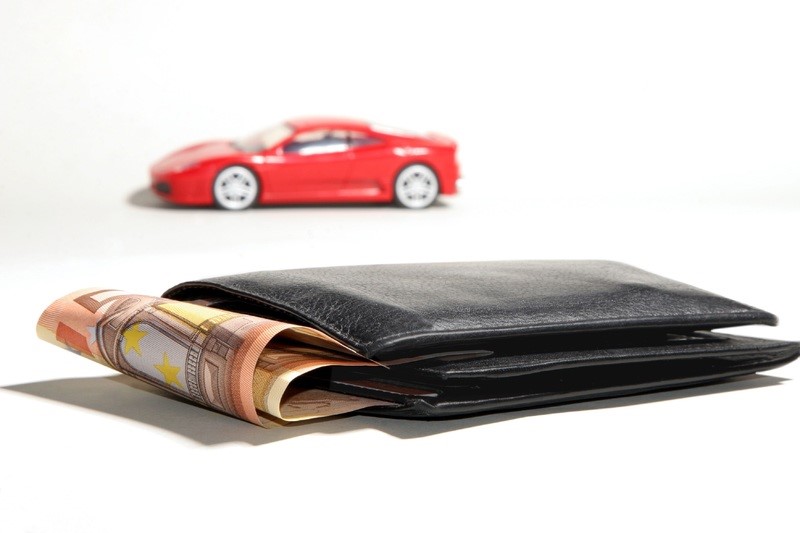Applying for a Car Loan? Here’s What You Need To Know
Are you looking for finance to secure your dream car?
The first thing to note is that car loans are personal loans lent for the specific purpose of purchasing a car.
Every lender has their eligibility criteria that they attach to the loan they offer so that means that there are a number of factors that can impact your ability to gain a loan.
In relation to car loans, these can include taking into consideration the state of the vehicle (new or used), the purchase price, the age of the car, whether you are purchasing the car from the private seller or dealership, and much more.
With this in mind, you should conduct your research and find a loan provider and a loan that suits your needs and situation.
Like many other loans, vehicle loans are priced based on risk. You will likely have to pay a higher interest rate if lenders perceive you to be a high-risk applicant. Conversely, borrowers perceived to be lower risk are likely to be charged a lower interest rate.
There are mistakes to be avoided when applying for a mortgage, as well as when buying your first home. And car loans are no different.
So, are you ready to take up a loan?
Begin to check your credit file information and credit score before applying for a car loan. In doing so, ensure everything is error-free and up-to-date. Importantly, reviewing this information ensure you understand your standing before entering negotiations for a car loan.
When it comes to signing your contract, ensure you read the agreement carefully and in its entirety. Double-check everything and, most importantly, read the fine print.
Secured Car Loans
For secure car loans, the borrower needs to offer an asset as the security for the loan. In the case of car loans, security is the car itself.
In cases where borrowers fail to repay their loans, lenders have the right to repossess the security (the car), sell it, and recover their money. In the event the resale value of the vehicle is not enough to pay off the car in full, borrowers are still obligated to repay the remaining amount.
In the case of secure car loans, it is common practice for lenders to require you to take out a comprehensive car insurance covers on the car used as security.
According to the team at Domain Roofing, choosing the right loan type is key. They explain “we use vehicles in our line of work every day. So while a car is necessary, we would need to make sure the loan fit our needs. It’s important not to rush into loans to get a deal, if it can come back to bite you down the line.”
Unsecured Car Loan
For unsecured loans, borrowers do not have to offer security to lenders. This type of loan is typically provided for purchases of older used cars as they tend to have a low resale value.
For this kind of loan, you have to convince the lender of your good financial standing, that you are creditworthy, and therefore, able to repay the loan. Given the unsecured nature of the loan and the lender taking on a higher risk, they will usually charge a higher interest rate.
In the event you fail to repay the loan, the lender has the right to take legal action against you to recover their money.
Other Types Of Car Financing
Specialist Financing
You can get car financing from non-traditional lenders as well. Such lenders include specialist financiers who offer car loans, hire purchase agreements, car leases, business financiers, and equipment financiers.
Just like any other loan, before you sign the agreement, ensure you read the contract carefully and thoroughly.
The finance experts explains, “The most important thing to note when applying for an equipment loan, car loan or similar is the collateral being used to secure your loan. If you are a small business this can have a huge impact on your success should you be unable to pay.”
In addition to this, you need to understand the fees payable, the interest rate charged, the repayment terms and conditions, and any additional terms and conditions may be applicable.
For instance, check with the lender whether a balloon payment is due at the end of your loan term. Balloon payments are lump sum payments due at the end of a loan term that makes regular repayment cheaper.
Dealer Financing
When purchasing your car from a dealer, many will offer to arrange the financing for you.
Undoubtedly, getting everything in one place is convenient.
The small business owners at Driveway Doctors rely on their vehicle for their business, so the right financing is crucial. They had this to say, “Our car is essential in getting us from job to job, so we wanted to get the best deal on our finance for something we use so regularly. As tempting as opting for the simplest package might be, it definitely pays to spend time researching all your options.”
It is essential to note, in this case, that the dealer will receive a commission from the finance company. Consequently, most auto dealers will try to sell you add-ons that you do not need to increase the sale price.
Additionally, it is necessary to check the interest rates and compare with other auto dealers and loan providers.
Ask the dealer whether there is a possibility to negotiate the terms of financing, making sure the possible financing option is available on the car model and brand you intend to purchase.
Is A Variable Or Fixed Car Loan right for you?
The vast majority of car loans lenders charge a fixed interest rate. However, some lenders charge a variable interest rate.
Repayments on fixed car loans do not change throughout the loan term even when the interest rate fluctuates. As such, fixed interest rates are easier to budget monthly. The only downside is that some lenders will charge a fee for early repayments and extra repayments.
This is important to consider if you believe you will be able to pay off your loan early.
Local entrepreneurs from Any Rubbish are aware of this and had this to say, “You would assume that paying off a loan early would be a good thing, but that is not always the case. Extra fees charged for early payments can put an added financial strain on your business, simply by trying to be proactive in your payments. It’s important to ask your lender if they have this policy, so you can decide how you would like to pay off your loan”
Repayments on a variable loan changes from time to time as influenced by interest rates. Variable car loans do allow borrowers to make extra repayments and or repay your loan early without incurring penalties. However, such loans are harder to budget for every month.
Fees
– Establishment Fees
Most lenders will charge borrowers a one-off establishment or application fee once you accept the loan. The fee covers the cost of arranging for and administering the loan.
– Ongoing Fees
Some lenders charge a regular and ongoing administration and or service fee to cover the cost of loan administration and maintenance. Such fees are charged on a yearly, quarterly, or monthly basis.
– Early Exit Fees
Some lenders charge borrowers early exit fees for repaying all of the loan or part of it before the end of the loan term. If you plan to repay your most or all of your loan early, check if the lender charges an early exit fee and how much it is. Ensure the benefit of making early repayment do not cancel out with the fees.
As you can see, there are a number of different options when it comes to taking out a car loan. Although this can seem overwhelming, once you start doing your research on these options and understand how to calculate your borrowing power you will be much more confident that you are receiving the best possible loan option.
Now, it’s time to get started on your financing process and watch yourself get even closer to that dream car you’ve had your eye on.
Need help with financing? Speak to the experts at Aussem Mortgage Solutions and get the experienced help you need!






